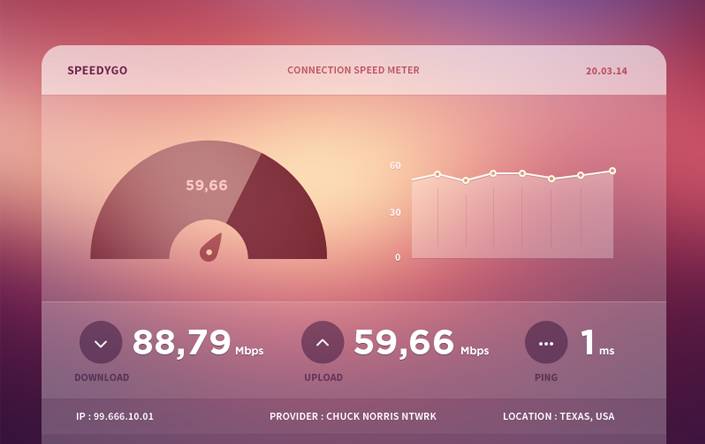As more and more content is distributed online, consumers are caring less about the bells and whistles and more about speed.
How long your website takes to load has become an all important factor in the conversion rate of your site and is the most common reason that users abandon a webpage.
One survey even found that if a web page was not loaded in 2-3 seconds that 79 percent of consumers would abandon the page and 44 percent would never return to the website again.
In fact, for every second it takes to load your website, the abandonment rate increases by nearly 20 percent. This number is even higher for mobile sites.
Google and other search engines also use page load time as an important factor in search engine rankings, giving preference to sites that load in under 5 seconds.
This shows that just a few seconds can make a huge impact on your conversion rates, revenue and sales.
There are many services out there that can test the speed of your site and give you a pretty good idea of which pages are slowing down your overall load time. Google Labs runs Page Speed Online which is a web-based tool that can give you a run down of your site speed and suggestions you can make to fix it.
Google Analytics also offers information on site speed and how your website is performing compared to the competition.
Once you have an understanding of your site speed, here are a few simple ways to improve it-
1.) Choose a good host: Shared hosts might seem like a bargain, but if you are planning on running a high volume of traffic and uploading a lot of content, in the long run this decision will cost you greatly.
2.) Choose a good web-design: When it comes to the coding and theme of your website, choosing a design that is simple and light will drastically help to improve your page speed. If you use WordPress, try to choose a theme that is simple and has a solid framework. If you are getting a website coded just for your business, try to keep it simple and clean to avoid slow page loads.
3.) Caching Plugin: Installing a caching plugin can help load your website faster as elements remain cached. Most plugins are either super cheap or free, so this is definitely something to take advantage of.
4.) Content Delivery Network: Most big websites use a content delivery network (CDN) which essentially takes all of the static files on your site including CSS, Javascript and images etc. and lets users download them at a faster rate by storing the files on servers that are located closer to them. There are a few services that offer this for a reasonable price, do your homework and discover which is the best for your site.
5.) Compress Images: When it comes to uploading files such as images and videos, reduce the file size down or install a compression plugin. If you use WordPress there are many plugins that will automatically compress images and such on your website. If your site is uniquely coded however, it is recommended to reduce the file size before uploading it to your website.
6.) Optimise Your Home Page: If you can get your homepage to load quickly, you may be able to get away with slower pages within your site. Start to optimise your home page to load faster by showing excerpts instead of full posts, reduce the number of posts or images on the homepage, remove unnecessary widgets or plugins and keep the content to a minimum.
7.) Disable Hotlinking: Hotlinking occurs when other sites direct a link to the images on your site from their articles. This makes your server load increasingly high. This can add up as your site becomes more popular. In order to prevent this from slowing down your website you will need to contact a developer who can put special code into your website.
8.) Comments: If you have lots of comments and Gravatar images loading on a page it can drastically decrease the speed of your site. Consider disabling gravatar logos altogether or limit the number of comments shown on each page.
9.) Turn off Pingbacks: By default, most sites such as WordPress enable pingbacks and trackbacks. This means that every time another blog or website mentions you, it notifies your site and updates the data on the post. If you turn this feature off, it will not effect your backlinks, all it will do is decrease the load time of your webpage.
10.) Avoid Redirects: When your site has a lot of 301 redirects, it can confuse the browser and slow down the page load due to the fact that it has to sort through all the old destinations to get to the new one. If possible, limit the number of 301 redirects to increase page speed.
Decreasing the load time of your website can do wonder for your conversion and traffic rates. Try some of these suggestions today and see if you can boost your conversion rate.

Hey!
It looks like you're browsing in . Would you like to switch over to the website?